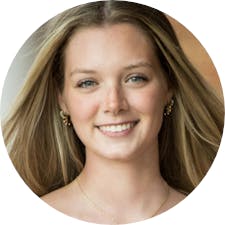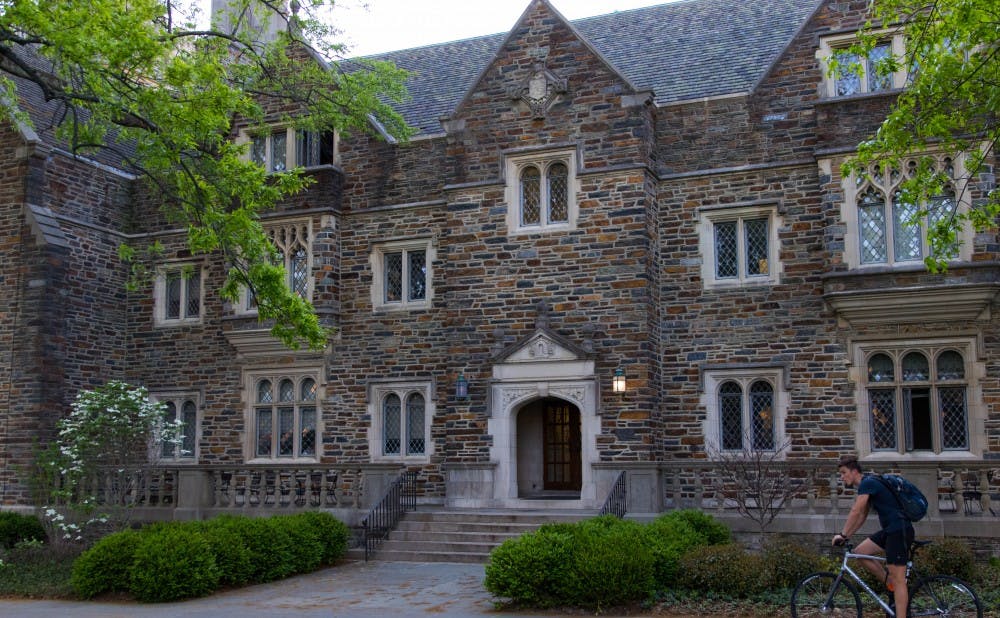Arts & Sciences Council discussed the possibility of implementing mandatory “first-year clusters” as well as other changes to the first-year curriculum as part of its ongoing project of revamping the Trinity College curriculum at their Thursday meeting.
First-year clusters, an idea proposed by the Trinity Curriculum Development Committee (TCDC) and sent to the Council for input, would require first-year students to take two classes linked by a common theme. Themes would be interdisciplinary, and the program would aim to advance first-years' intellectual exploration and curiosity, engagement with multiple disciplinary perspectives and community-building experiences.
The TCDC also proposed possibly reimagining the first-year writing program, accompanying each first-year cluster with a writing course.
Council members broke into small groups to discuss the proposed program, with members of the TCDC in attendance as well. While many Council members applauded the idea’s interdisciplinary goals, some raised concerns about its feasibility and the extra workload that it would place on faculty.
Mark Chaves, Anne Firor Scott distinguished professor of sociology, noted that in order to incentivize faculty members to participate and to participate well in the program, the University would have to reduce faculty members' course loads, which in turn would require hiring additional faculty to pick up those classes.
Implementing the first-year cluster program would require “increasing the size of the faculty by 20% or 30%,” Chaves said.
“We're a research university. We expect our faculty to prioritize research. We expect us to be excellent teachers as well. But [the] proposal amounts to adjusting our work allocation away from research and towards teaching. I think that’s not going to work,” he continued.
Catherine Mathers, associate professor of the practice of international comparative studies, echoed Chaves’ sentiments, noting that Duke’s ICS program is substantially smaller than other departments and that they sometimes barely have enough faculty members to cover teaching their core courses.
The burden of labor associated with the program likely would not be split evenly among departments, as certain subject areas lend themselves more naturally to programs similar to the one proposed, others noted.
Several Council members also raised concerns about incentivizing and adequately resourcing faculty to participate in the program. From a logistical standpoint, members emphasized the importance of providing faculty with funding to plan and host events for the cluster outside the classroom, worries about the burden on faculty members’ time and the administrative impediments against co-teaching courses.
While council members did have concerns about its implementation, many saw the program as an opportunity to strengthen Trinity’s commitment to interdisciplinary study in liberal arts education.
The proposed clusters would have faculty-proposed themes that would introduce students to diverse ways of thinking and “support an appreciation of the complexity of the challenges facing our world.”
Joshua Sosin, associate professor of classical studies, shared that in his small group discussion, committee members expressed a stronger preference for cluster themes to be “stable and abiding” rather than current.
He also mentioned that linking the courses together over the span of two semesters could create opportunities for slow learning and innovative programming over winter break and might also help ease some of the program implementation's logistical issues.
Paul Jaskot, professor of art, art history and visual studies, proposed “Duke in the South” as a possible theme idea for a cluster, emphasizing the importance of creating themes that will make students feel as though the program is more than just a “check-the-box” thing.
The TCDC also proposed considering alternative approaches to grading, such as standards-based or mandatory pass/fail grading for the cluster courses, as well as integrating the program more broadly with non-curricular aspects of the first-year experience.
Such co-curricular programming could be modeled off of programs that already exist at Duke, such as FOCUS, “What Now?” and QuadEx.
The TCDC will now take the committee’s feedback into consideration ahead of submitting a proposal for a new Trinity College curriculum to Arts & Sciences Council in January and potentially approving the new curriculum later this spring.
Get The Chronicle straight to your inbox
Signup for our weekly newsletter. Cancel at any time.

Holly Keegan is a Trinity sophomore and a university news editor of The Chronicle's 119th volume.

